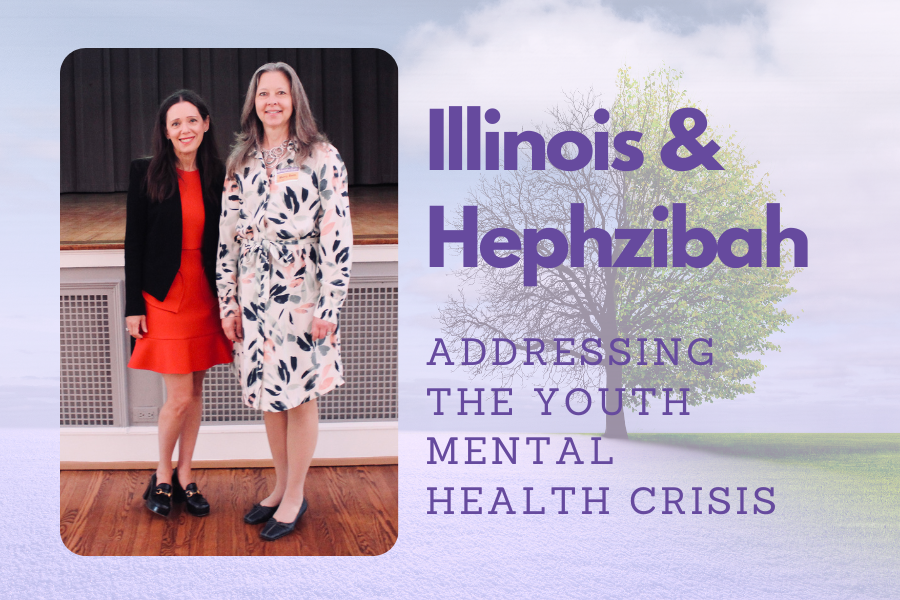It’s no secret. The mental health crisis for today’s youth has reached epidemic levels, with depression, self-harm and suicide all on the rise. Finding solutions and maneuvering the path to intensive services can be confusing and overwhelming to parents, educators, health care providers and anyone in a profession that helps youth grapple with these serious issues. The State of Illinois, along with agencies such as Hephzibah, are together, looking for ways to address this crisis, and improve access to care.
At our recent Annual Meeting of Hephzibah’s Board of Directors, Dana Weiner, Ph.D. and Chief Officer for Children’s Behavioral Health Transformation Initiative for Illinois, spoke not only about the seriousness of the crisis, but what the state, and child welfare agencies can do about it.
Dr. Weiner, appointed to her role by Governor J.B. Pritzker, has created a “Blueprint for Transformation” as part of this initiative, which paves the way to drastically change and improve how families can gain access to mental health services for children. Dr. Weiner and Governor Pritzker know this will require an immense amount of cooperation between communities and agencies state-wide, but trust it can be done. In this innovative approach, collaboration will be the driving force. Hephzibah staff are already familiar with this approach, as we frequently rely on inter-agency collaboration and innovation as ways to ensure each child has access to every possible service available both within Hephzibah and through other community resources.
According to Dr. Weiner, the mental health crisis in youth is especially rampant in children trapped in the foster care system. “Stuck Kids,” who are already experiencing fragile transitions between foster care placements, can suddenly become lost in the system when they hit barriers such as lack of centralized case management, geographical distance to services and lack of communication between child welfare agencies. Children often end up in hospitals, or shuffled between homes too frequently, shattering their stability and causing them to lose precious progress they’ve made. Creating a more collaborative network of providers and resources will allow agencies to share more information, and identify supports faster, so children get the help they desperately need, and sooner.
At Hephzibah, we create a comprehensive treatment plan for each child, that under this new initiative, could follow them wherever their care journey takes them. Dr. Weiner also stressed the importance of creating more programs such as Hephzibah’s Positive Parenting Program, or Triple P, which helps families strengthen before they fracture by providing life-saving resources to help them when they struggle. Earlier intervention can help kids struggling with family disruption, another factor that can ignite mental health distress. Creating a state-wide sharing network, another goal of this initiative, would help families access the resources they need to get back on track before the family is in crisis.
As Dr. Weiner moves forward with this “Blueprint for Transformation” to the implementation phase, she has hope that it is possible to overhaul the system to improve access to care, increase capacity of services available to youth and develop supports for children as they grow. At Hephzibah, we look forward to adopting this plan where we can because we strongly believe in a holistic, innovative approach to child well-being, as we have since 1897 when we pledged to care for society’s most vulnerable children.
Upcoming Info Sessions

